Description
Dark Mode for 'ggplot2' Themes.
Description
Activate dark mode on your favorite 'ggplot2' theme with dark_mode() or use the dark versions of 'ggplot2' themes, including dark_theme_gray(), dark_theme_minimal(), and others. When a dark theme is applied, all geom color and geom fill defaults are changed to make them visible against a dark background. To restore the defaults to their original values, use invert_geom_defaults().
README.md
ggdark
Installation
You can install ggdark from GitHub with:
# install.packages("devtools")
devtools::install_github("nsgrantham/ggdark")
Dark mode for ggplot2
library(ggplot2)
p <- ggplot(diamonds) +
geom_point(aes(carat, price, color = cut)) +
scale_y_continuous(label = scales::dollar) +
guides(color = guide_legend(reverse = TRUE)) +
labs(title = "Prices of 50,000 round cut diamonds by carat and cut",
x = "Weight (carats)",
y = "Price in US dollars",
color = "Quality of the cut")
p + theme_gray() # ggplot default
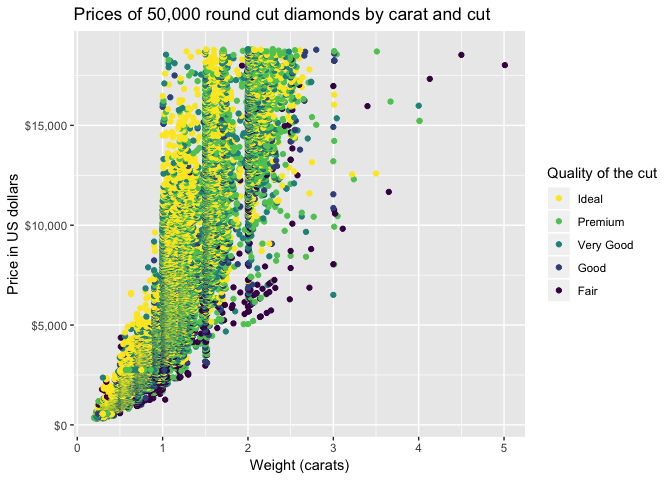
library(ggdark)
p + dark_theme_gray() # the dark version
#> Inverted geom defaults of fill and color/colour.
#> To change them back, use invert_geom_defaults().
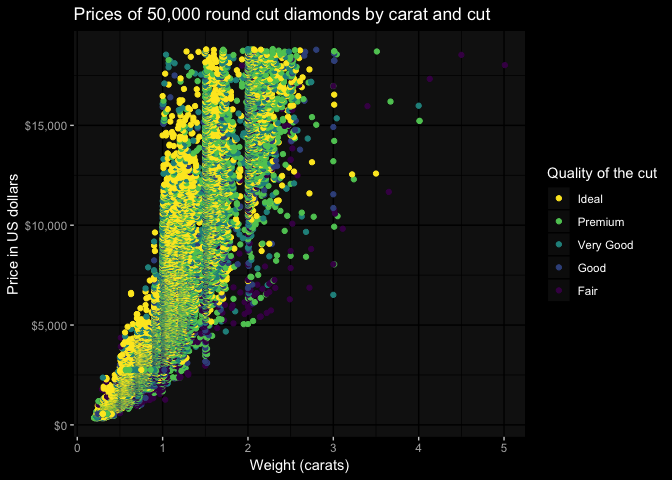
# modify the theme to your liking, as you would in ggplot2
p + dark_theme_gray(base_family = "Fira Sans Condensed Light", base_size = 14) +
theme(plot.title = element_text(family = "Fira Sans Condensed"),
plot.background = element_rect(fill = "grey10"),
panel.background = element_blank(),
panel.grid.major = element_line(color = "grey30", size = 0.2),
panel.grid.minor = element_line(color = "grey30", size = 0.2),
legend.background = element_blank(),
axis.ticks = element_blank(),
legend.key = element_blank(),
legend.position = c(0.815, 0.27))
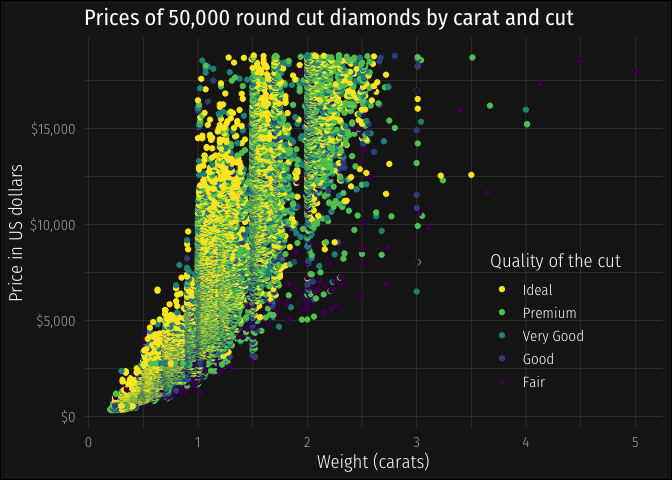
Dark themes
ggdark provides dark versions of all themes available in ggplot2:
mtcars2 <- within(mtcars, {
vs <- factor(vs, labels = c("V-shaped", "Straight"))
am <- factor(am, labels = c("Automatic", "Manual"))
cyl <- factor(cyl)
gear <- factor(gear)
})
p <- ggplot(mtcars2) +
geom_point(aes(wt, mpg, color = gear)) +
facet_grid(vs ~ am) +
labs(title = "Fuel economy declines as weight increases",
subtitle = "(1973-74)",
caption = "Data from the 1974 Motor Trend US magazine.",
x = "Weight (1000 lbs)",
y = "Fuel economy (mpg)",
color = "Gears")
p + dark_theme_gray()
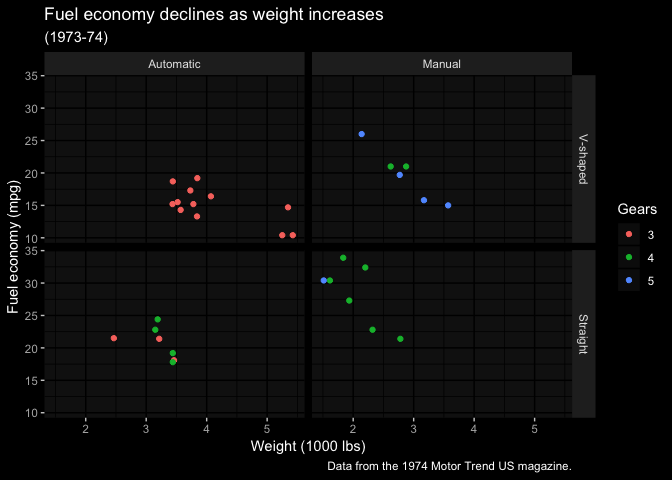
p + dark_theme_bw()
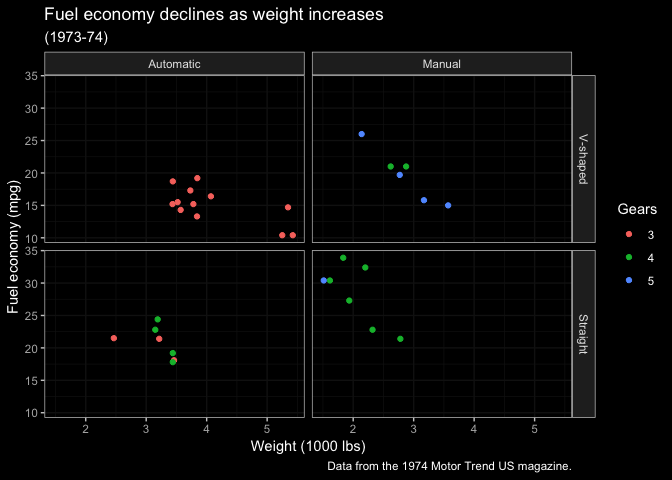
p + dark_theme_linedraw()
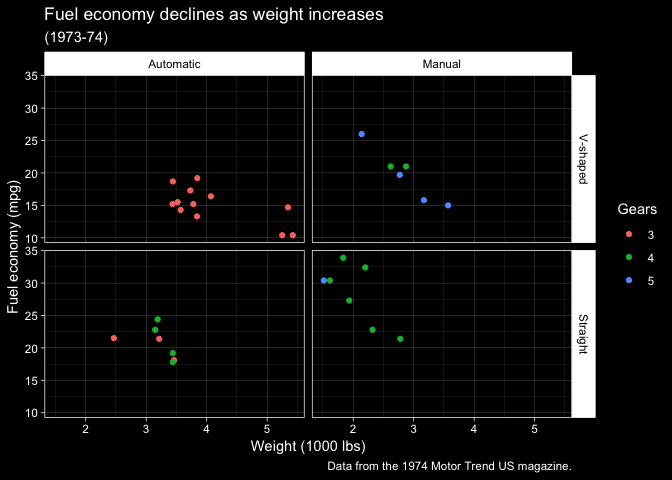
p + dark_theme_light() # quite dark
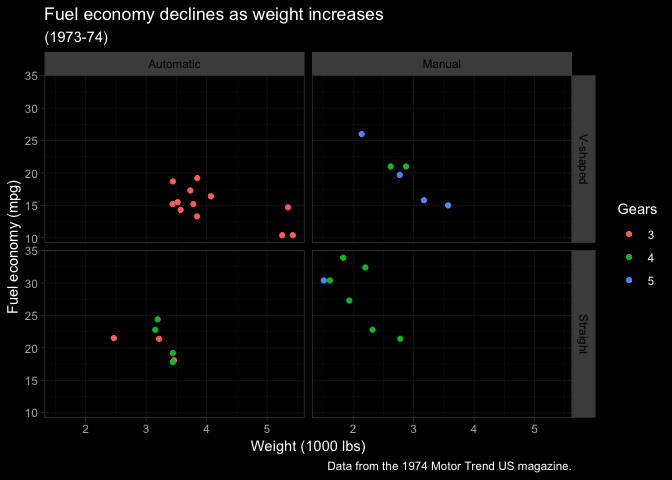
p + dark_theme_dark() # quite light
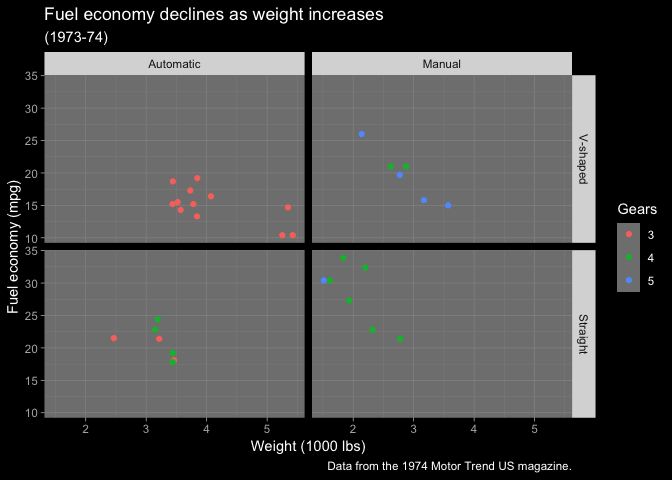
p + dark_theme_minimal()
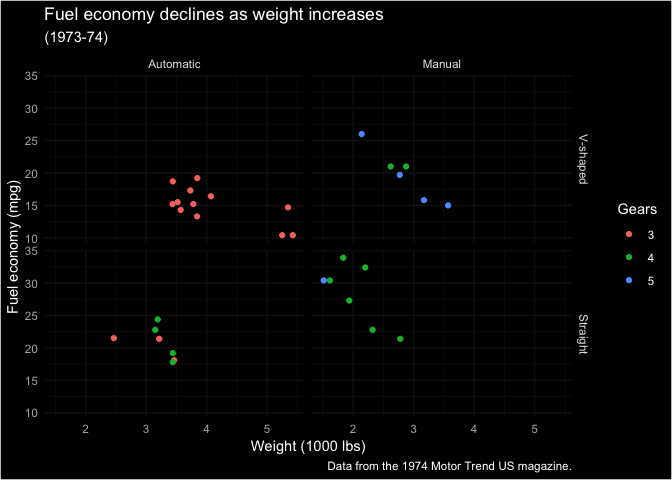
p + dark_theme_classic()
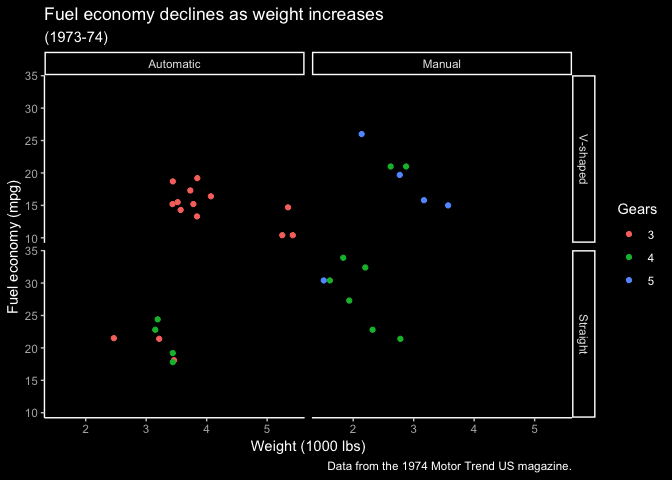
p + dark_theme_void()
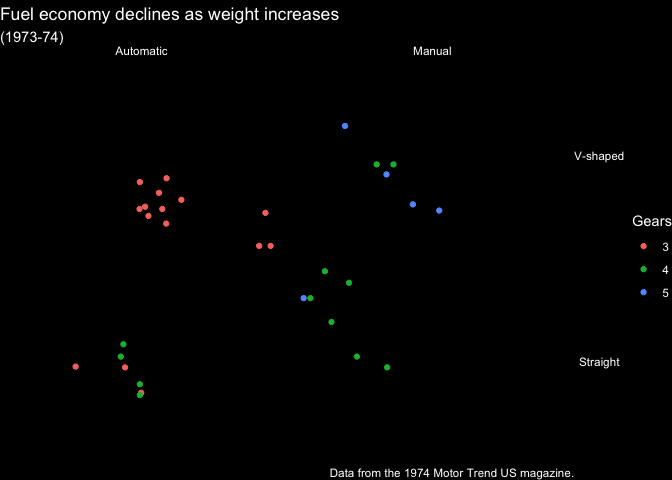
Make your own dark theme
Usedark_mode on any theme to create its dark version.
invert_geom_defaults() # change geom defaults back to black
library(gapminder)
p <- ggplot(subset(gapminder, continent != "Oceania")) +
geom_line(aes(year, lifeExp, group = country, color = country), lwd = 1, show.legend = FALSE) +
facet_wrap(~ continent) +
scale_color_manual(values = country_colors) +
labs(title = "Life expectancy has increased across the globe")
# install.packages("ggthemes")
library(ggthemes)
p + theme_fivethirtyeight()
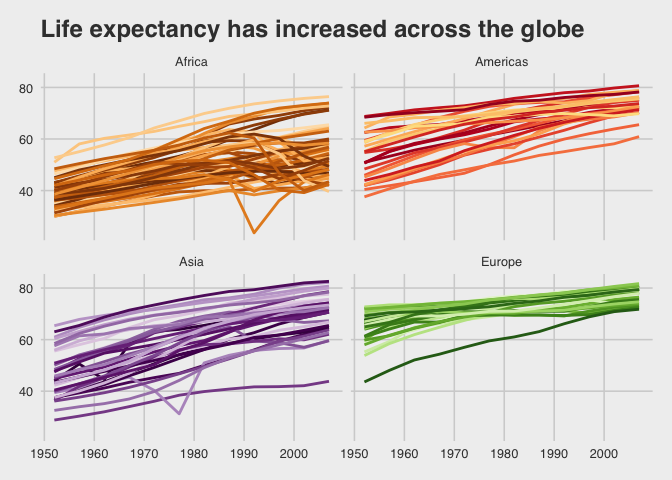
p + dark_mode(theme_fivethirtyeight())
#> Inverted geom defaults of fill and color/colour.
#> To change them back, use invert_geom_defaults().
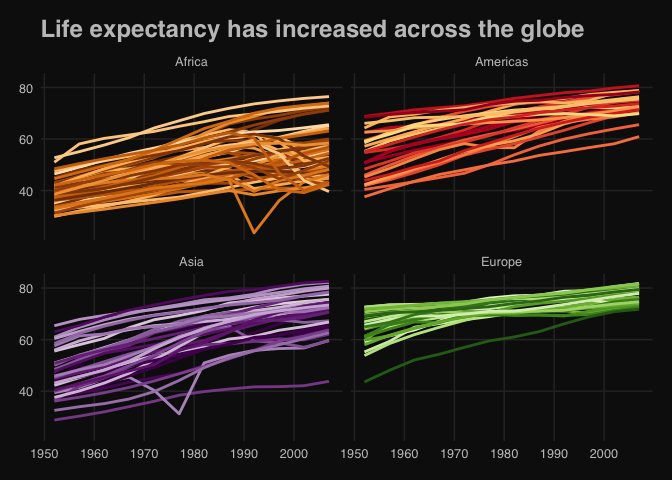
invert_geom_defaults() # leave the geom defaults how you found them!
Happy plotting! 🖤